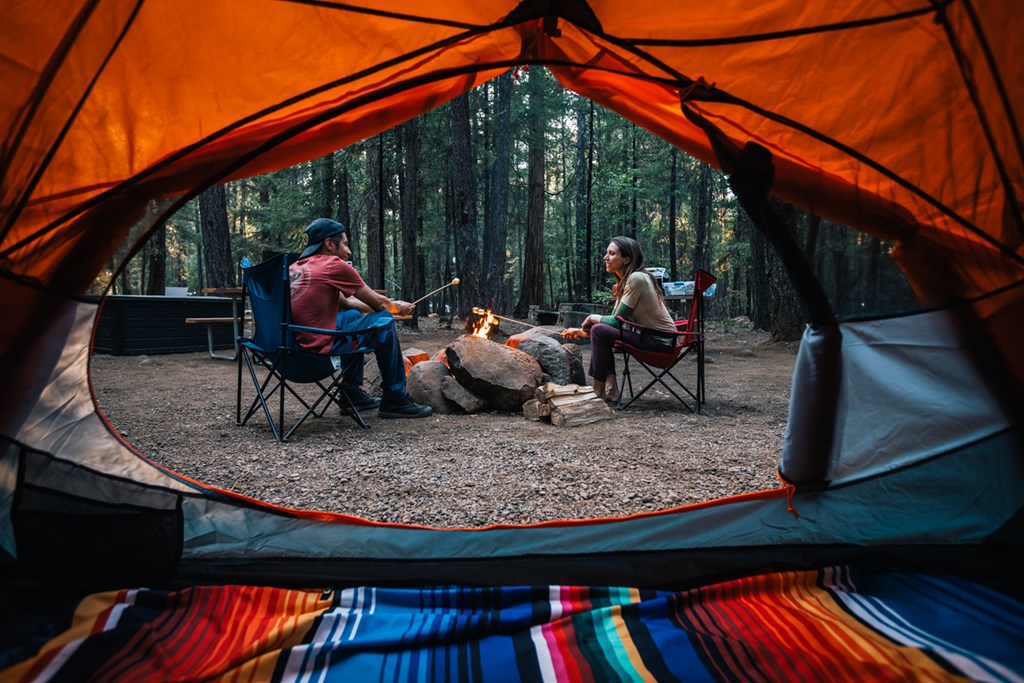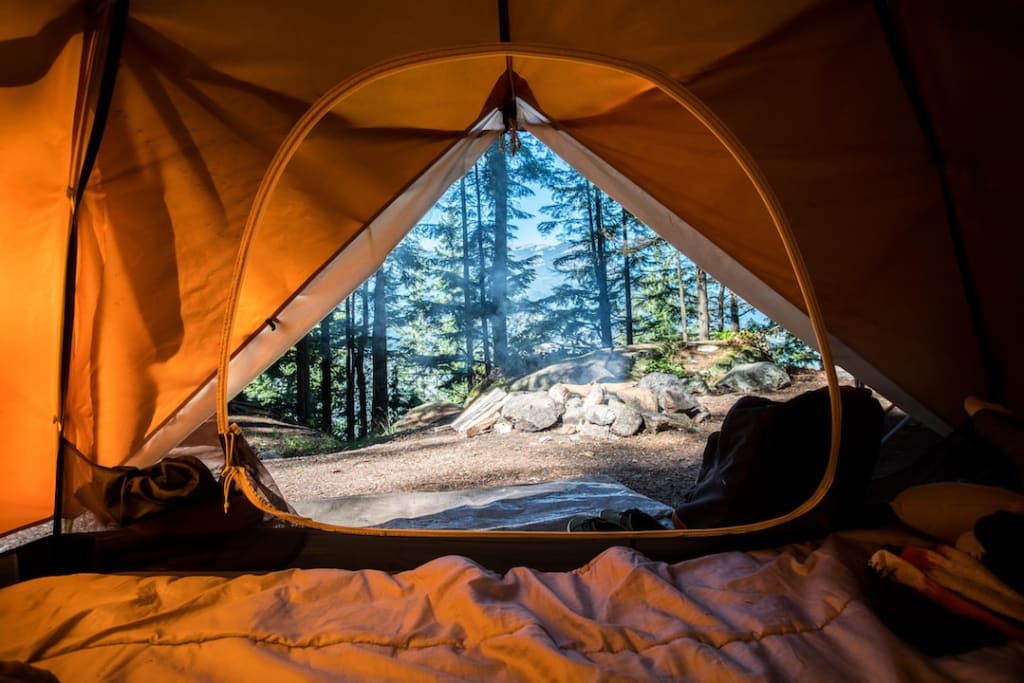Camping is a fantastic way to escape the hustle and bustle of everyday life, immerse yourself in nature, and create lasting memories. Whether you are a seasoned camper or a first-timer, this comprehensive guide will help you plan and enjoy your camping trips to the fullest.

Why Go Camping?
- Reconnect with Nature:
- Camping allows you to unplug from technology and enjoy the beauty of the natural world. The fresh air, scenic landscapes, and tranquility of the outdoors provide a perfect backdrop for relaxation and reflection.
- Health Benefits:
- Engaging in outdoor activities such as hiking, swimming, and fishing can improve physical health. The exposure to natural sunlight increases vitamin D levels, while the calming environment reduces stress and anxiety.
- Quality Time with Loved Ones:
- Camping trips offer an excellent opportunity to bond with family and friends. Sharing meals, telling stories around the campfire, and participating in group activities strengthen relationships and create cherished memories.
Planning Your Camping Trip
- Choosing the Right Campsite:
- Research: Determine the type of camping experience you want, whether it’s in a national park, a private campground, or a backcountry site. Consider the facilities available, such as restrooms, showers, and potable water.
- Reservations: Many popular campsites require reservations, especially during peak seasons. Book early to secure your spot and avoid disappointment.

- Packing Essentials:
- Shelter: Bring a reliable tent, a sleeping bag appropriate for the season, and a sleeping pad for added comfort. Consider the size and weight of your gear, especially if you plan to hike to your campsite.
- Clothing: Pack clothing in layers to adapt to varying weather conditions. Include waterproof and warm layers, along with comfortable footwear.
- Food and Cooking Supplies: Plan simple yet nutritious meals that are easy to prepare outdoors. Bring a portable stove, cookware, utensils, and enough water or a water filtration system.
- Safety and Navigation:
- First Aid Kit: Always carry a well-stocked first aid kit with essentials like bandages, antiseptics, and pain relievers. Know basic first aid procedures.
- Navigation Tools: Bring a map, compass, or GPS device to navigate trails and unfamiliar terrain. Ensure you have a means of communication in case of emergencies, such as a fully charged phone or a satellite messenger.
Setting Up Camp
- Selecting a Campsite:
- Choose a flat, dry area free of rocks and debris. Avoid setting up near potential hazards like dead trees, cliffs, or water sources that may flood.
- Ensure your campsite is at least 200 feet away from lakes, streams, and trails to minimize environmental impact and avoid disturbing wildlife.
- Pitching Your Tent:
- Practice setting up your tent before your trip to ensure you can do it quickly and correctly. Secure your tent with stakes and guy lines to withstand wind and rain.
- Use a ground tarp or footprint under your tent to protect it from moisture and abrasion.
- Building a Campfire:
- Follow local regulations and use designated fire rings or pits if available. Gather small, dry sticks and kindling to start your fire, and gradually add larger logs.
- Keep your fire small and manageable, and never leave it unattended. Always have water and a shovel nearby to extinguish the fire completely before leaving or going to bed.
Activities to Enhance Your Camping Experience
- Hiking and Exploration:
- Choose trails that match your fitness level and interests. Bring plenty of water, snacks, and a trail map. Enjoy the scenic views, and take your time to observe the flora and fauna.
- Practice Leave No Trace principles by staying on marked trails, respecting wildlife, and packing out all trash.
- Water-Based Activities:
- Swimming: Find safe swimming spots free from strong currents and underwater hazards. Always swim with a buddy and follow safety guidelines.
- Fishing: Check local fishing regulations and ensure you have the necessary permits. Bring appropriate fishing gear and practice catch-and-release to preserve fish populations.
- Nighttime Activities:
- Stargazing: Camping provides an excellent opportunity to enjoy the night sky away from light pollution. Bring a telescope or binoculars to enhance your stargazing experience. Use apps or star charts to identify constellations and planets.
- Campfire Fun: Gather around the campfire for storytelling, singing, and playing games. Traditional campfire activities like roasting marshmallows and making s’mores add to the fun.
Leave No Trace Principles
- Plan Ahead and Prepare:
- Research the area you will be visiting and know the regulations. Prepare for extreme weather, hazards, and emergencies. Minimize waste by repackaging food and using reusable containers.
- Travel and Camp on Durable Surfaces:
- Stay on established trails and camp on designated sites or durable surfaces like rock, gravel, or dry grass. Avoid fragile areas like wetlands and meadows.
- Stay on established trails and camp on designated sites or durable surfaces like rock, gravel, or dry grass. Avoid fragile areas like wetlands and meadows.
- Dispose of Waste Properly:
- Pack out all trash, leftover food, and litter. Use toilets if available, or dig a small cathole at least 200 feet away from water sources and trails to bury human waste.
- Leave What You Find:
- Preserve the natural environment by leaving rocks, plants, and other natural objects as you found them. Avoid disturbing cultural or historical artifacts.
- Minimize Campfire Impact:
- Use a camp stove for cooking and minimize the use of campfires. If you do build a fire, keep it small, use only small sticks, and ensure it is completely extinguished before leaving.
- Respect Wildlife:
- Observe animals from a distance and never feed them. Store food and trash securely to avoid attracting wildlife to your campsite.
- Be Considerate of Other Visitors:
- Respect other campers by keeping noise levels down and following campground rules. Yield to other hikers on trails and be mindful of shared spaces.

